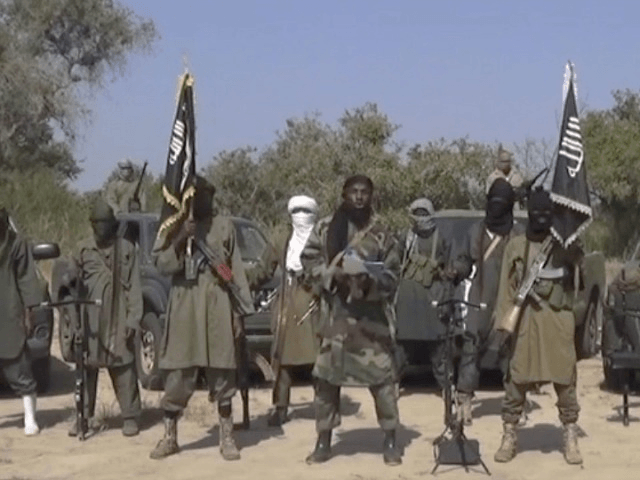Jihadist terrorist group Boko Haram in 2009 kicked off an insurgency in Nigeria that spilled into neighboring countries to the east and persists to this day.
According to an analysis published by Nigerian newspaper Premium Times on Sunday, two of the major economic activities disrupted by the insurgency – commercial fishing and farming of red pepper – have been co-opted by Boko Haram in recent years and used to fuel its current resurgence in the vast Lake Chad region linking Nigeria, Niger, Chad, and Cameroon.
Fish and red pepper were central trading products in the Lake Chad Basin economy before the crisis, and many area communities depended upon them as both a source of food and revenue. Prior to Boko Haram’s rise, the combined fish and red pepper trades contributed $48 million to Nigeria’s economy, and employed over 300,000 people according to the World Food Program, the report said.
In 2015, the terrorists began to strategically reorganize the trade of both products. They encouraged fishing by the banks of Lake Chad among local communities and created a new economic structure of taxes, fees, and paid protection for traders along secure routes to reach designated markets, according to the report.
Boko Haram’s leadership sent recruiters to internally displaced persons (IDPs) camps in Nigeria’s Borno State, requesting the very people they had displaced to return to fishing, farming, and trading, but now under their terms, reported the Premium Times. Several hundred families agreed to resume farming and fishing activities in and around Lake Chad, eager to escape the camps’ desperate and inhumane living conditions.
Borno state, in northeastern Nigeria, was one of the Lake Chad communities most dependent on commercial fishing and red pepper farming prior to the terrorists’ jihadist campaign, according to the analysis, and was also the site where Boko Haram caused the most conflict.
Lake Chad’s aquatic life and natural resources replenished in the years following the insurgency and subsequent halting of fishing and farming in the area. According to the report, Boko Haram capitalized on this new abundance when recruiting fishermen and farmers from the camps. The jihadist terrorists described the bountiful aquatic life in Lake Chad as a strong indication that Allah was pleased with the war they had been waging and was rewarding them with the “symbolic manna from heaven,” says Premium Times.
In reality, some contend the renewal of aquatic resources in Lake Chad was the result of the drastic reduction of human activity in the region due to population displacement caused by the insurgency.
According to the report, once the area’s agriculture was re-established, Boko Haram began to charge farmers and fishermen a significant tax for their products. It also forced farmers to pay for security provided by Boko Haram on specially designated routes when transporting their goods to markets.
“Most of the revenue from fish is shared between the military that confiscates the goods and the terrorists that charge levies for these items,” said a Borno State government official speaking to the Premium Times on condition of anonymity.
Often, farmers and fisherman pay their taxes to the terrorists not in cash but in the form of essential commodities like gasoline, prescription drugs, mobile phones, cooking stoves, and spices according to the report.
The Premium Times argued that Nigerian government officials allow Boko Haram to continue the illegal fish and red pepper trade in the country unbothered, while Chadian forces have attempted to curtail the operations in their regions.
In recent months, Boko Haram has increased its attacks in the Lake Chad area, taking advantage of lockdowns caused by the ongoing coronavirus pandemic to stage a resurgence. Last month, the terrorist group carried out two of its most significant attacks to date; since then, it has continued to attack communities left vulnerable due to coronavirus lockdowns in the area, which restrict people’s movement.
Boko Haram massacred at least 92 Chadian soldiers on March 22 when it attacked an army base on Boma Peninsula along the border with Nigeria and Niger. It was the single deadliest attack on Chad’s military forces. The next day, Boko Haram reportedly wiped out an entire Nigerian artillery unit. The militants ambushed and killed at least 50 Nigerian soldiers near northern Nigeria’s Yobe state, in one of the deadliest assaults on Nigerian troops.
Since 2009, Boko Haram has killed roughly 36,000 people and displaced about two million people in northeastern Nigeria, according to United Nations estimates. As seen with the attacks in March, regional authorities have largely failed to combat the jihadist insurgency. Several nations united to create the Multinational Joint Force in 2015, in an attempt to counter jihadist activity in the Lake Chad area.

COMMENTS
Please let us know if you're having issues with commenting.